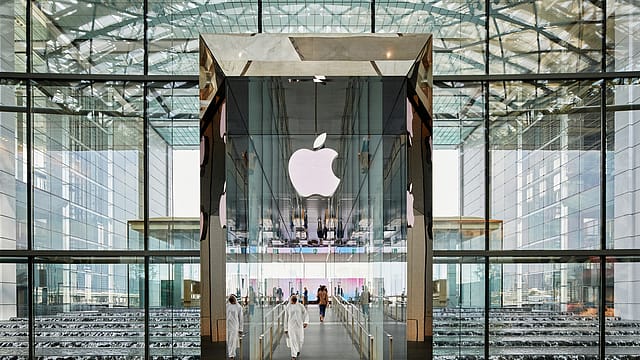Apple flew 600 tonnes of iPhones from India ahead of US tariffs: Report
ADVERTISEMENT

iPhone maker Apple chartered cargo flights to ship 600 tonnes of iPhones, or as many as 1.5 million devices, to the United States from India in circumvent tariffs announced by U.S. President Donald Trump's tariffs, reported Reuters.
Apple urged Indian airport officials to reduce the customs clearance time at Chennai airport in Tamil Nadu from 30 hours to just six hours, reported Reuters. About six cargo planes with a capacity of 100 tonnes each have flown out since March before the new tariffs kicked in, the report said.
This comes at a time when China, the largest manufacturing base for Apple's iPhones, faces Trump's highest tariff rate of 125%. This rate significantly surpasses the 26% tariff on imports from India, which has been temporarily suspended following Trump's announcement of a 90-day pause this week, a move that does not apply to China.
While pausing tariffs, Trump, in a post on Truth Social, said, "Based on the fact that more than 75 countries have called representatives of the US to negotiate a solution and that these countries have not, at my strong suggestion, retaliated in any way, shape, or form against the United States, I have authorised a 90-day pause, and a substantially lowered reciprocal tariff during this period, of 10%, also effective immediately.”
According to the United States Trade Representative (USTR), India's total goods trade with the U.S. reached $129.2 billion in the previous year. In 2024, India exported goods worth $87.4 billion to the U.S., while the U.S. shipped $41.8 billion in goods to India. The U.S. goods trade deficit with India stood at $45.7 billion in 2024, marking a 5.4% rise compared to 2023.
New Delhi-based think tank Global Trade Research Initiative (GTRI) believes relatively lower reciprocal tariffs give India a natural competitive advantage in several sectors like textiles and garments, electronics, semiconductors, machinery, and toys among others.
According to GTRI, in the electronics, telecom, and smartphone sectors, countries like Vietnam and Thailand are likely to lose cost competitiveness due to the steep U.S. tariffs. This opens a window for India, which has already begun investing in electronics manufacturing through government incentives like the Production-Linked Incentive (PLI) scheme. As global brands seek to diversify supply chains away from high-tariff countries, India can emerge as a preferred destination for new manufacturing setups and component assembly lines, it says.